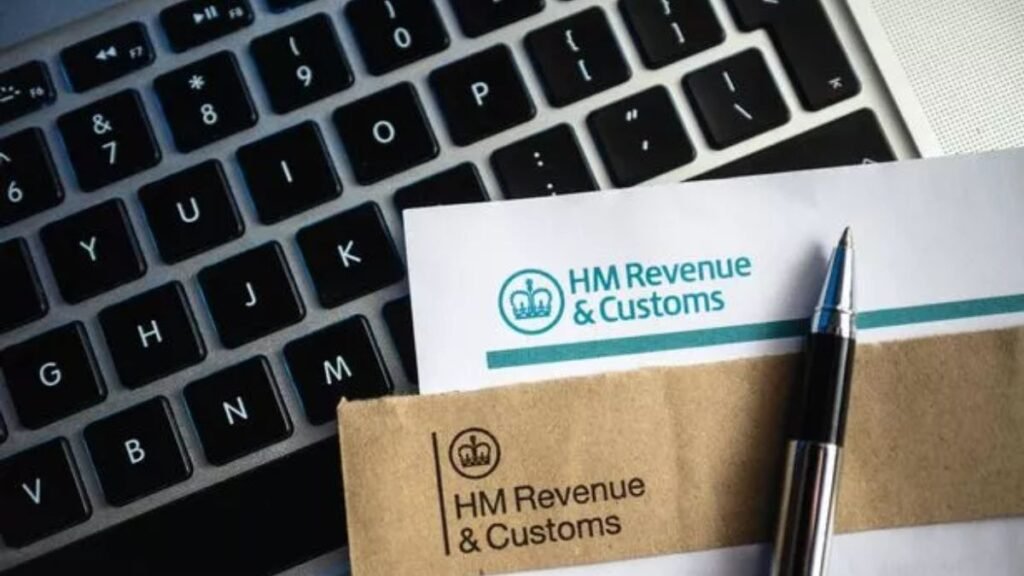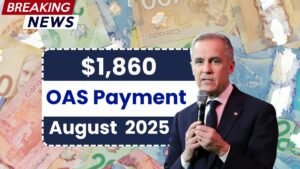Introduction: Today, everyone deposits money in savings account, fixed deposit or other investment options to keep their hard-earned money safe. But if you think that the money deposited in your bank is hidden from the eyes of the tax, then this news is very important for you.
Her Majesty’s Revenue and Customs of Britain i.e. HMRC Payment has issued a warning that people who have an amount of £3,500 or more in their bank account may get a tax related notice in the coming days. HMRC is now keeping an eye on those accounts in which good interest has been received on savings and it is preparing to collect tax on this interest.
Why is HMRC sending tax notices?
Like every year, HMRC is checking the total income of the people and the interest received in their bank accounts after the end of this financial year. Banks and financial institutions automatically send your interest information to HMRC. If your income is above a certain limit and you have earned interest on savings, HMRC can send you a tax bill.
This notice is especially for those people whose income or bank interest exceeds the limit of Personal Savings Allowance (PSA).
What is Personal Savings Allowance (PSA)?
According to the rules of HMRC, every person is given tax exemption on savings interest up to a certain limit, which is called PSA.
- Basic rate taxpayers (income < £50,270): Interest up to £1,000 tax free
- Higher rate taxpayers (income £50,271 – £125,000): Interest up to £500 tax free
- Additional rate taxpayers (income > £125,000): No PSA, all interest taxable
What if you have £3,500 in savings?
Suppose you put £3,500 in a fixed deposit account at 5% interest for three years. The interest you will earn after three years is about £525, which is above the PSA limit.

Now, it is worth noting that in fixed deposit accounts, interest is ‘crystallised’ and paid out at once, so all interest will count in the same financial year. As a result, HMRC can send you a notice.
What happens if you ignore this notice?
The tax notice sent by HMRC is not a simple letter that you can throw in the dustbin.
Ignoring it can have serious consequences:
- Late fees and interest: The interest rate on late payment has now increased to 8.5%, which can increase your bill every month.
- Penalty: If you do not file your tax return on time, there will be a straight penalty of £100.
- Scrutiny of accounts: If you ignore the warning repeatedly, HMRC can conduct a thorough investigation of your accounts.
Which accounts will be affected?
According to information released by HMRC, the following types of accounts fall under this rule:
- Bank and building society savings accounts
- Union savings and credit accounts
- Unit trusts, open-ended investment companies
- Peer to peer lending
- Trust funds and PPI
- Government and company bonds
Note: If you have invested your money in an ISA (Individual Savings Account), it is tax free and PSA does not apply to it.
Will children’s savings accounts also be taxed?
Many parents open savings accounts in the name of children. If the interest in that account exceeds £100 and that money has been deposited by the parents, then HMRC can send a tax notice to the parents.
How is the connection between tax year and interest made?
A big misconception is that interest is counted a little bit each year, but in a fixed deposit account all the interest is paid out in one go, in the year it matures.
This means that even if you deposited the money three years ago, the interest is counted as income in the year it’s paid out – and that could take you over the PSA limit.
Conclusion:
If you’ve put £3,500 or more into a savings account or fixed deposit, be careful. HMRC is keeping an eye on your bank interest, and you could get a tax bill if you exceed the PSA limit.If your annual interest income exceeds the Personal Savings Allowance (PSA) limit, you could have to pay tax. Those who already fall into a regular income bracket should especially bear this in mind, as the PSA limit varies according to their tax bracket.
FAQs
Q1. Why is HMRC sending letters to households with over £3,500 in bank accounts?
A. HMRC is sending letters to individuals whose interest income from bank savings may exceed their Personal Savings Allowance (PSA), prompting them to declare any unpaid tax.
Q2. What is the Personal Savings Allowance (PSA)?
A. The PSA is the amount of interest you can earn from your savings without paying tax. It’s £1,000 for basic rate taxpayers, £500 for higher rate taxpayers, and £0 for additional rate taxpayers.
Q3. Does having over £3,500 automatically mean I owe tax?
A. Not necessarily. It depends on the interest earned on that amount and your income tax band. HMRC assesses this based on the data they receive from banks.
Q4. What should I do if I receive a letter from HMRC?
A. Read it carefully and follow the instructions. If needed, check your interest income and file a Self Assessment or contact HMRC for clarification.
Q5. Will everyone with over £3,500 in their bank account get this letter?
A. No, only those whose interest earnings may have crossed the PSA threshold, based on reported figures from banks, are likely to receive letters.

